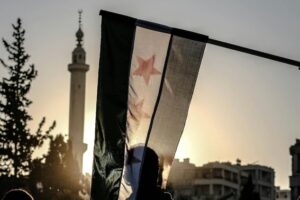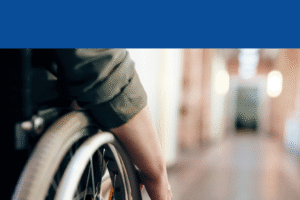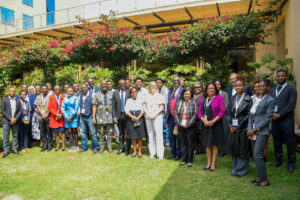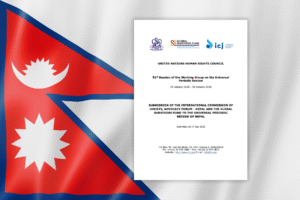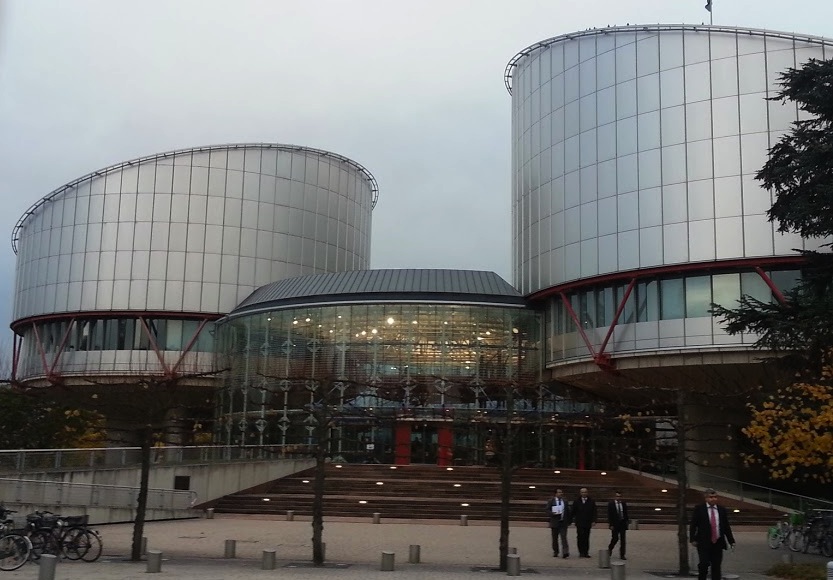
Nov 18, 2014 | Advocacy, Cases, Legal submissions
On 17 November 2014, the ICJ and ILGA-Europe filed their joint written submissions with the European Court of Human Rights in the case of Milica Đorđević and others v. Serbia (Application Nos. 5591/10, 17802/12, 23138/13 and 25474/14).
The case concerns the authorities’ decision in 2009 to relocate the applicants’ “Pride Parade” to promote the equality and visibility of lesbian, gay, bisexual and transgender people away from central Belgrade, Serbia, and the authorities’ repeated banning of Pride Parades in central Belgrade in 2011, 2012 and 2013.
The ICJ and the European Region of the International Lesbian, Gay, Bisexual, Trans and Intersex Association (ILGA-Europe)’s submissions to the Court focus on:
- the essential role of the right to freedom of peaceful assembly in a democratic society, and the scope of discretion afforded to States in determining measures required to prevent disorder at an assembly where counter-demonstrators threaten violence against groups most at risk; and
- the nature and scope of the State’s obligation in relation to the right to freedom of peaceful assembly under the European Convention on Human Rights and the International Covenant on Civil and Political Rights, focusing in particular on States’ duty to adopt legislative and administrative measures in order to fulfil their legal obligations.
SERBIA-ECHR amicus Dordevic-Advocacy-Legal Submission-2014-ENG (full text in PDF)
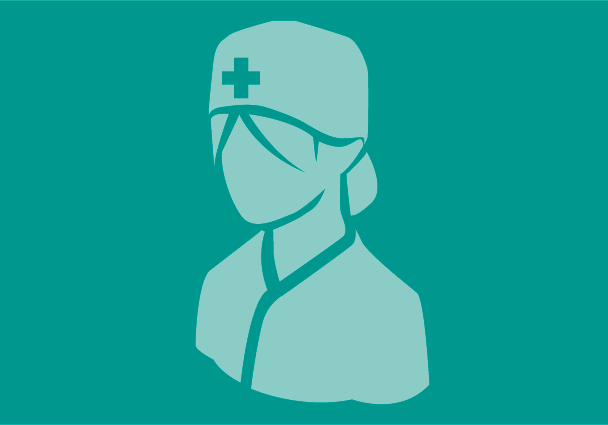
Oct 9, 2014
The ICJ has submitted information to the UN Committee on Economic, Social and Cultural Rights in preparation for the Committee’s examination of the initial periodic report of Uganda under the International Covenant on Economic, Social and Cultural Rights (ICESCR).
During its pre-sessional working group meeting in December 2014, the Committee will adopt a ‘List of Issues’ for the examination in June 2015 of the initial periodic report of Uganda under ICESCR.
In this submission, the ICJ draws the Committee’s attention to the detrimental impact of the adoption and enforcement of the Anti-Homosexuality Act 2014, as well as the effect of pre-existing and extant criminalization of consensual same-sex sexual conduct on the respect for and the protection and realization of certain Covenant rights.
The organization considers that those laws violate the following Covenant rights of Uganda’s population generally, and in particular of lesbian, gay, bisexual, transgender and intersex persons, living or working in Uganda:
- The principle of non-discrimination (article 2(2));
- The right to work (article 6) and to just and favourable conditions of work (article 7);
- The right to an adequate standard of living, including adequate housing (article 11);
- The right to the enjoyment of the highest attainable standard of physical and mental health (article 12);
- The right to education (article 13).
Uganda-CESCR_LOI-legalsubmission-2014-ENG
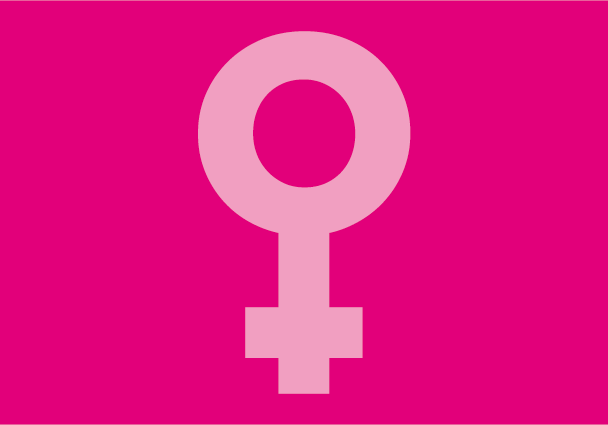
Oct 3, 2014
The ICJ has made a submission to the CEDAW in advance of the examination of the combined combined initial and second periodic reports of Brunei Darussalam under Article 18 of the Convention on the Elimination of All Forms of Discrimination against Women.
The ICJ submission draws the Committee’s attention to concerns related to the criminalisation of consensual adult sexual relations and marital rape.
The Committee will examine the combined initial and second periodic reports of Brunei during its 59th session from 20 October to 7 November 2014, following which it will adopt Concluding Observations setting out recommendations to the Government of Brunei Darussalam.
Brunei-CEDAWsubmission-LegalSubmission-2014-ENG
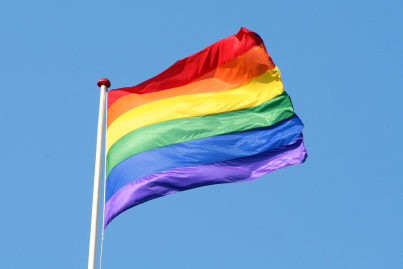
Oct 3, 2014 | Agendas, Events
Today, the International Commission of Jurists (ICJ) held its second expert roundtable on asylum claims based on sexual orientation and/or gender identity.
Participants included asylum judges, lawyers, and academics, as well as officials from the Office of the UN High Commissioner for Refugees and staff members from a number of civil society organizations.
Prof. Hathaway, Director of the Program in refugee and asylum law at the University of Michigan Law School, Prof. Anker, Director of the Harvard Law School’s Immigration and Refugee Clinical Program, and Judge Lars Bay Larsen, judge of the Court of Justice of the European Union, were the main speakers at the roundtable. Each delivered a presentation focussing on different normative aspects of asylum claims based on sexual orientation and/or gender identity.
The programme of the second expert roundtable, including a list of all participants, can be downloaded here.
This roundtable forms part of a broader ICJ’S project on international protection claims based on sexual orientation AND/OR gender identity. The programme of the first roundtable organised in Brussels last June can be downloaded here. The ICJ’s commentary on the related CJEU judgment in X, Y and Z v. the Netherlands can be downloaded here.
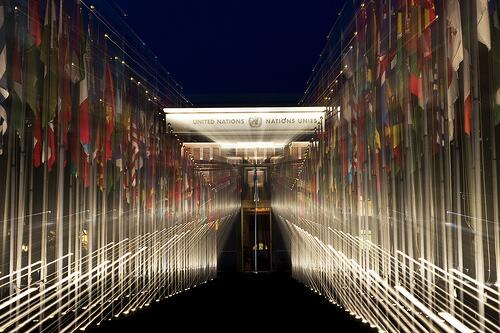
Sep 26, 2014 | News
As the UN Human Rights Council approached the conclusion of its 27th regular session tonight, it adopted resolutions including on the topics of violence and discrimination on the basis of sexual orientation or gender identity and the protection of civil society space.
The resolutions on civil society space, and on non-violence and non-discrimination on grounds of sexual orientation or gender identity, were adopted after a series of hostile amendments were defeated.
The resolution on sexual orientation and gender identity, led by Brazil, Chile, Colombia and Uruguay, recognizes the worldwide problem of violence and discrimination, and builds on a resolution on the same subject from 2011. It calls for the High Commissioner for Human Rights to update the report produced under the 2011 resolution.
The States that supported the resolution on sexual orientation and gender identity overcame a series of amendments brought by Congo, Djibouti, Egypt, Malaysia, Nigeria, South Sudan, Uganda, and United Arab Emirates. The amendments would have among other things deleted all references to sexual orientation and gender identity from the resolution text, fundamentally changing its purpose, and perpetuating a complete denial of the very real violence and discrimination inflicted on lesbian, gay, bisexual, transexual and intersex people in all regions of the world.
The civil society space resolution, which was led by Chile, Ireland, Japan, Sierra Leone, Tunisia, draws on discussions at a Panel convened by the Council earlier in the year. It affirms the valuable contribution made by civil society in countries around the world, expresses concern about the threats and challenges faced by civil society, and requests the High Commissioner for Human Rights to produce practical recommendations for addressing these threats and concerns.
The texts of the resolutions (in the final draft form on which they were adopted – the official final versions are not yet available) are available here: Civil Society Resolution Sexual Orientation Gender Identity Resolution
A joint NGO press release on the resolution on sexual orientation and gender identity is available here.
The ICJ maintains databases of jurisprudence, legislation and UN action on the topic of sexual orientation and gender identity.






